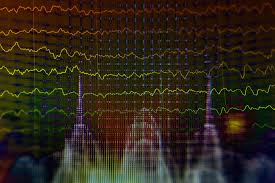Source: hotsr.com
The University of Arkansas for Medical Sciences says it has received $1.9 million from the National Science Foundation to help the state establish a cyberinfrastructure platform that will improve on Arkansas’ existing data science strengths and competitiveness.
The money is part of a five-year $20 million grant from NSF’s Established Program to Stimulate Competitive Research awarded to the Arkansas Economic Development Commission’s Division of Science and Technology in partnership with UAMS and seven other colleges and universities around the state, a news release said.
The program, Data Analytics That Are Robust and Trusted, brings together Arkansas’ best data scientists in partnership with data-driven industries to focus research and skills development on data science and analytics. DART is led by AEDC and the University of Arkansas, Fayetteville.
UAMS’ role has two parts. One is development of the Coordinated Data Science Cyberinfrastructure – the Arkansas Research Platform, led at UAMS by Fred Prior, Ph.D., professor and chair of the Department of Biomedical Informatics in the College of Medicine, the release said.
As part of the effort, UAMS and UAF recently signed a memorandum of understanding that enables the two institutions to build and share additional computational infrastructure as part of DART.
“This platform will enable researchers at all EPSCoR member institutions in Arkansas to access state-of-the-art computing and storage resources to enable new avenues of big data research,” Prior, who is joined on the project by Lawrence Tarbox, Ph.D., assistant professor in the Department of Biomedical Informatics, said in the release. “The high-bandwidth connection between our institutions, as well as other significant system upgrades, will foster even more collaboration across the state.”
Prior, whose computer science career has included leadership roles at major corporations, said Arkansas corporations urgently need analysis of petabytes of data.
“The DART program opens the door for public and private cooperation to advance our data research capabilities and expand the workforce in this field,” Prior said. “We’re very excited about the opportunities this will create for data science.”
The Arkansas Research Platform will be designed and built as part of existing high-performance computing resources at UAMS, UAF and other sites. It will support a variety of machine and statistical learning, graph theory, bioinformatics, and geoinformatics, parallel computation and distributed memory using high-performance computing for analysis of large datasets. Researchers will also have improved data sharing infrastructure and the ability to stream data to distant sites.
UAMS’ second key role is the management of biological data across institutions. David Ussery, Ph.D., a professor in the Department of Biomedical Informatics, is the UAMS lead for this effort, also known as data curation.
“A lot of very useful data is inaccessible because of the way it is stored,” said Ussery, inaugural recipient of the Helen Adams & Arkansas Research Alliance (ARA) Endowed Chair in Biomedical Informatics. “We need to better manage these locally created, fragmented data sources so that they are available for research analyses.”
Ussery’s team includes Se-Ran Jun, Ph.D., assistant professor in the Department of Biomedical Informatics, and Stephanie Byrum, Ph.D., assistant professor in the College of Medicine Department of Biochemistry and Molecular Biology.
